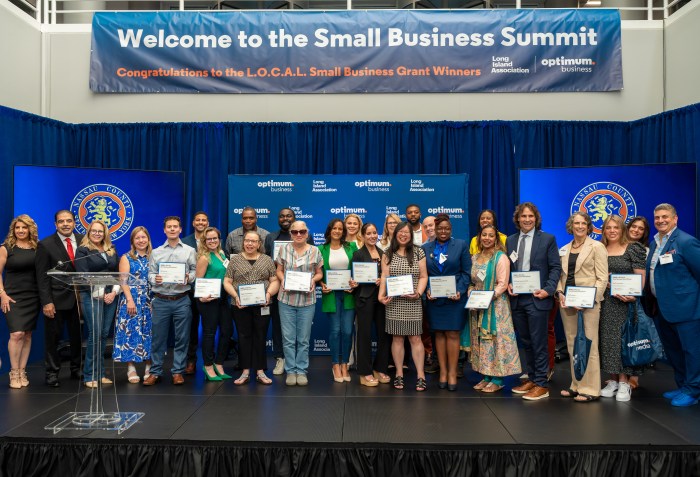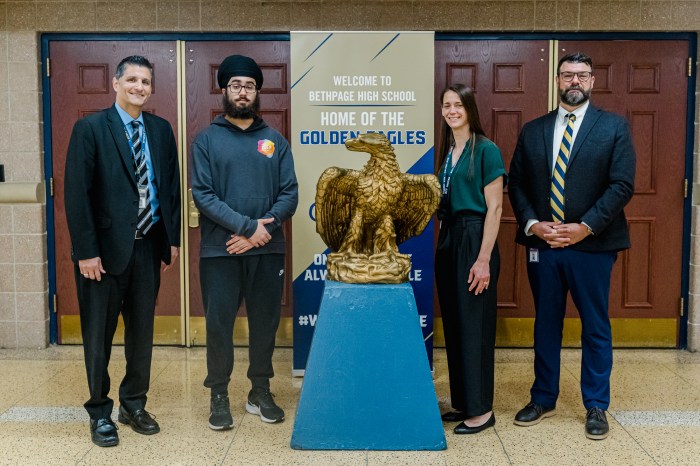Caring for the Caregiver at St. Bede’s Episcopal Church helps caregivers to realize they are entitled to a life of their own
Many people provide regular care for a chronically ill, disabled or aged family member not for any compensation, but out of love. However, while love may be priceless, the value of the time and energy these people expend is not: The National Alliance for Caregiving estimates that if all those in the United States who currently take care of their loved ones for free were to charge for their services, they would collectively be owed approximately $450 billion in wages per year. Obviously, what many caregivers provide out of the goodness of their hearts has tremendous value, in every sense of the word.
The problem is that while people in need may be saving a cool $450 billion on nursing expenses, there is always a toll to be paid, and in this instance it is the caregivers themselves who invariably pay it. Caregivers often become so busy caring for their relatives that they lack the time to care for themselves, often to the point where their own health is negatively affected. No one thinks that people should stop caring for people they love, but after a while, one has to ask: Who cares for the caregiver?
For too long, the answer was no one, but Craig Jennings and the rest of the staff at Caring For the Caregiver have been trying to bridge that gap for the past several years. The group meets twice a month at St. Bede’s Episcopal Church in Syosset, and is looking to expand so that caregivers all over Long Island will have a place where they can get the support they not only need, but deserve.
For Jennings, the transition from carefree to caregiver was sudden and frightening. “About five years ago, my wife turned to me and she said “I think I have a lump in my breast,” Jennings remembered, saying that the months that followed were the worst in his marriage. The two had always maintained traditional roles in the home, and the sudden role reversal left them both angry and on edge.
“I mean, I was the man of the family; I was the bringer-home of bacon. I didn’t do the cleaning and the washing and the tidying up. [She] was even more angry, because she was the Mom, the taking-care-of person, and she did not want to be taken care of,” said Jennings.
Overwhelmed, Jennings went to a support group called Cancer Care of Long Island in Westbury. Over the eight months he attended Cancer Care, he not only learned how to become a better caregiver, but realized there were people in even more difficult situations. He speaks of “the ten bravest women in the world,” women he met at the group whose husbands were all dying of stage 4 cancer. Some of these husbands were taking the difficulty of the situation out on their wives, emotionally if not physically. Exposed to the issues many caregivers face, Jennings decided that people in this situation needed more support than was currently available locally.
To provide that support, Jennings started the first incarnation of Caring for the Caregiver at the Unitarian Universalist Congregation of Shelter Rock (UUCSR) Church in Manhasset. He enlisted the support of Reverend Greg Johnson, who helped Jennings organize Caring For the Caregiver Fairs, designed to make caregivers aware of the availability of caring and healing circles. The organization has continued holding the fairs and the most recent one, held at Winthrop Hospital in Mineola this past January, was attended by over 120 caregivers.
At the fairs, Jennings says that caregivers are often astounded to find out how many people are in the same situation. The fairs include a sample caring and healing circle, where many caregivers can expound about their problems to people who really understand, perhaps for the first time. It’s one thing to be told that you are not alone, but the Caregiver’s Fair is where many people really start to believe it.
There are support groups for people with Alzheimer’s, cancer, and many other diseases, but Caring for the Caregiver is the only program in the area that supports caregivers specifically, disease-independent, and non-denominationally.
In 2010, the organization moved to St. Bede’s Episcopal Church in Syosset, where it holds caring and healing circles. During a typical circle, the caregivers go around and introduce themselves, explaining the problems they are currently facing in their day-to-day lives. Everyone in the circle, including the facilitator, must either be or have been a caregiver at some point. Facilitator and Caring For the Caregiver Executive Director Karen Scheif noted at a May meeting of the group that sometimes they find answers by talking problems out, and sometimes not—either way, there’s a lot of wisdom to be gleaned from around the table.
When new members attend, the group also reads through “A Caregiver’s Bill of Rights” by Jo Horne. The “bill” includes the right to “get angry, be depressed, and express other difficult feelings occasionally,” and the right “to protect my individuality and my right to make a life for myself…”
For many caregivers, being mindful of that particular right can be a challenge. For Sue, who has been attending the circle at St. Bede’s since its inception in 2010, taking care of her father, her mother, and currently her sister has made it extremely difficult to find time for herself. “Taking care of myself was not a priority, and I have to say it’s not a priority even today,” said Sue, going on to note that while she has learned to build boundaries to a certain degree, it’s still something she knows she has to work on.
Circle participant Terry noted the same problem, saying that when her mother came to live with her seven years ago, she stopped taking walks and started gaining weight consistently. She also stopped going out for coffee with a friend, feeling guilty about leaving her mother home alone. Another caregiver, Jeannette, said that while her mother was sick, she used to spend from 9 to 11 p.m. on the phone every night with members of her family giving them updates on her mother’s condition, something she eventually realized did not have to be her responsibility.
Some of the value of the circle is sharing experience with navigating the often complex logistics of caring for someone in poor health – many issues relating to coordinating doctor visits, insurance, health proxies, and power of attorney are discussed. However, just as valuable sometimes is the ability to vent about care recipients, not all of whom are a pleasure to deal with all the time. Sue’s tales of her frustration with her manipulative sister produced a lot of knowing smiles. “It’s almost like she installed my buttons,” said Sue to laughter from around the table.
Sometimes, caregivers also need to be told when it’s okay to walk away. Linda, a newcomer to the circle, shared her story of taking care of her stubborn, temperamental 92-year-old father while her family members expressed no interest in him beyond dividing up his money and material possessions as though he were already dead. Linda’s tale shocked the circle.
“You say, that’s my family. They wouldn’t do that to me, I’m the caretaker- why would they do such damaging things to me?” asked Linda rhetorically, obviously under a lot of stress. In addition to numerous problems with other family members (she and her sister are no longer on speaking terms), her father refuses medication, is verbally abusive to Linda, and refuses to go to a nursing home, despite the fact that he requires a high level of care.
“At this point, whatever’s going to happen with your father, it’s going to happen but I’m more concerned about you, I really am. And we’re all here to support you, because you’re headed for a road of disaster on your own,” said Schief to Linda. Other circle members chimed in that the situation was clearly abusive, and Linda had every right to either walk away, or take steps to make the rest of her family share the burden.
Linda’s mood visibly changed over the course of the session. Though she started out angry and overwhelmed, as fellow caregivers offered advice, she became more conversational, reporting details of her situation instead of lamenting them. While other people in her life might have told her some of these things before, hearing them from fellow caretakers—people who are the opposite of selfish—was different. By the end, it was clear that no matter how difficult the situation, Linda realized that she did have options and was far from powerless. According to Jennings, that’s an important journey he’s seen repeated many times at caring circles.
With all of the frustrations, it can also be helpful to be reminded of the many positives of caregiving. Terry, whose mother passed away last November, shared her joy at having improved her mother’s quality of life for many years. “At this point, I can say I can take pride in what I’ve accomplished, because I know she had a good life living with us…she was not a nursing home type of person, she was mentally sharp,” she said. “I don’t think she would have lived that long if she had gone to a nursing home.”
Those who are no longer caregivers, either because their loved one has died or simply no longer needs their attention, are always welcome at the circle to share their experience with current caregivers.
While the St. Bede’s circle welcomes members from all over the greater Syosset community, the program is growing: there are now seven caring circles on Long Island, including Massapequa Reformed Church in Massapequa, and St. Thomas of Canterbury Episcopal Church in Smithtown. Jennings is hoping to grow the program further, so caregivers all over Long Island will have their own circle to attend if they so desire.
Furthermore, he’s looking to add another service: a group specifically for those whose care recipients have recently died. Jennings himself lost his wife three months ago, and was obviously grieving at the May circle. It would be a very difficult loss for anyone to deal with, but at the very least, Craig Jennings knows he’s not alone.
Caring For the Caregiver meets the first and third Wednesday of every month at St. Bede’s Episcopal Church, located at 220 Berry Hill Road in Syosset from 7:30 to 9:30 p.m. For more information, including the location and meeting times for other caring circles, visit www.caringforthecaregiver.org.































